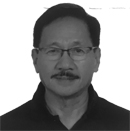In functioning democracies with three co-equal branches of government, it is the executive branch that gets the most attention and rightly so. And the presidency is also at the center of that democracy’s media universe. The president implements the policies laid down by the legislative, plus the powers that he or she wields as the chief executive and commander-in-chief of the armed forces. He is also in charge of those uber critical matters that pertain to foreign policy and international trade. Presidents who can’t temper their power trips often engage in executive overreach.
The real action, though, in the Philippine setting and in countries with similar governing structures, is at the Congress. Laws are written. The budget is passed. Resolutions are filed for the advocacy component of congressional work. The actual debates on policy take place in Congress. Congress has the power to impeach the president and officers of Constitutional bodies.
Continue reading with one of these options:
Ad-free access
P 80 per month
(billed annually at P 960)
- Unlimited ad-free access to website articles
- Limited offer: Subscribe today and get digital edition access for free (accessible with up to 3 devices)


